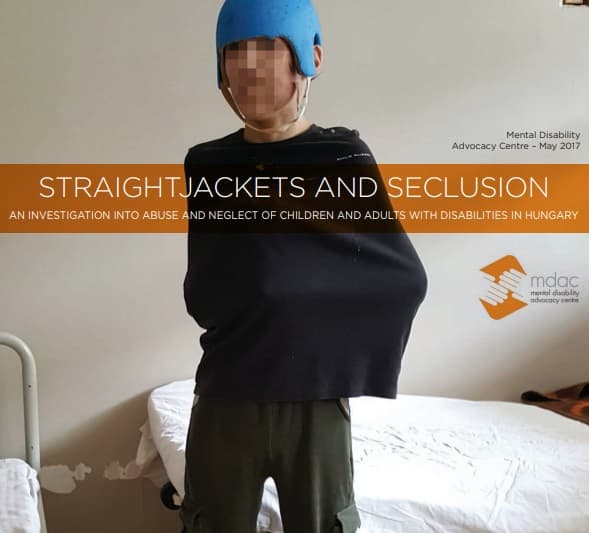Exposing the appalling conditions at Topház was not only correct but lawful as well
Translation is available for this content
Váltás magyarraTen months after the scandal broke concerning the Topház social care institution the Hungarian Data Protection Authority stated: the fact that the civil organization uncovering the horrible conditions took photos and published them anonymised in their report was not unlawful. Validity Foundation’s actions served the interest of the affected residents. The civil organization – which works to advance rights for people with mental health issues or intellectual disabilities – was represented in the proceedings by the Hungarian Helsinki Committee.

In the spring of last year Validity Foundation (formerly known as Mental Disability Advocacy Centre – MDAC) looked into the situation and the conditions of the residents in the government maintained Topház Special Home. The institution which is located in Göd has a capacity for 220 children and adults with disabilities. Validity uncovered shocking conditions requiring immediate measures. Thus they decided to take photos without permission to document the residents’ vulnerable situation and to publish these photos in their report. The report, which became available 3rd May, last year, did not include names and the photos were anonymised.
Validity filed charges as well, and the report about the horrific conditions and the neglected people appeared everywhere in the media. Naturally there was a loud outcry. The Ministry of Human Capacities requested an immediate investigation, and subsequently prepared an „action plan” to improve the situation. The Ombudsperson was fast to act and on 18th May 2017 published its long awaited report. This stated that the exposed conditions seriously violated the basic rights of the residents, their human dignity, and that „overall, and the individual measures on their own raise the issue of violating the ban on degrading, inhuman treatment.”
Instead of dealing with the human rights violations the Directorate-General for Social Affairs and Child Protection (part of the Ministry of Human Capacities) turned to the Hungarian Data Protection Authority with a complaint alleging the violation of data protection rules for taking and publishing (albeit anonymised) pictures of the residents. The Hungarian Helsinki Committee represented Validity in the proceedings.
The investigation of the Hungarian Data Protection Authority has now ended. The decision states: the circumstances were truly appalling and „ the protection of the fundamental interests (of the residents) was justified, which, the MADC recognised during their visit and which required the documentation of the residents’ condition”. Furthermore it was not possible to obtain the consent for the photography of those affected, but in this case this wasn’t even necessary as the procedure would not have served the residents’ interests. Thus taking photos was not unlawful.
Neither was their publication in the report. „The objective of publishing the photos was to inform the public about the conditions in the institution, and as a consequence to enforce measures from the authorities”. The published photos cannot identify the individuals. Therefore the law had not been violated in this case either.
“The decision of the data protection authority is not only important for Validity, but gives general guidance to all civil organizations, journalists and decent people who want to accurately document injustice to be able to step up against it – said Balázs Tóth, attorney-at-law for the Hungarian Helsinki Committee who represented Validity in the proceeding.